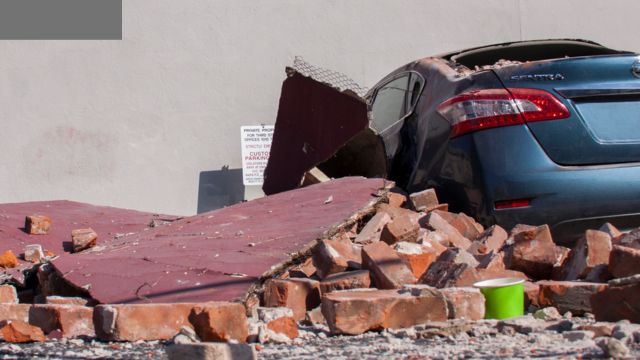Earthquake Safety Measures: What You Need to Know to Stay Secure
DEBARYLIFE – People in New York City, New Jersey, Pennsylvania, and Connecticut felt buildings shake on April 5, during an earthquake that is rarely noticed.
A short time later, the USGS said that an earthquake with a magnitude of 4.8 had happened in Lebanon, New Jersey, which is about 50 miles from New York City.
The USGS said the quake went through states nearby and was about 4.7 miles deep.
Not long after, people in the area got an emergency message letting them know about the earthquake and the chance of aftershocks.
Earthquakes that are felt, like the one on Friday morning, don’t happen very often near New York City. People might think that the ones they can feel are more dangerous, even though officials in the area said there were no signs of damage or injuries. Police in New York City told people not to call 911 unless they were in immediate danger.

Here are some general safety tips in case there are more earthquakes around the world in the future.
Some of the most common things that can be done right away, according to the Centers for Disease Control and Prevention (CDC), are “Drop. Cover. Hold On.”
SEE MORE: Understanding Earthquake Differences: Why Eastern US Quakes Stand Apart
When you feel an earthquake, you should get on your hands and knees right away so that the shaking doesn’t knock you down. Your hands and knees still let you crawl, so you can still get where you need to go. Since you can’t fall, it’s best to sit down or stay sitting to lower your risk of falling.
Cover means to hide your head and neck from any falling objects by getting under a strong table or desk. CDC says, “If there is no shelter nearby, get down next to a low wall or piece of furniture that won’t fall on you and cover your head and neck with your arms and hands.”
You could also use a big book, a pillow, or even your arms to hide yourself.
Until the shaking stops, you need to hold on to whatever is offering protection. Also, you should be ready for the desk or table to move and be ready to follow it if it does.
A second general tip is to not move around too much. You should stay outside and only go to an open place without buildings, trees, or telephone poles if you are outside. When you get out in the open, lie down low and stay there until the movement stops.
When you’re inside, stay inside and stay away from glass and things that aren’t attached to the wall and could fall, like light fixtures, wall hangings, high shelves, and cabinets with doors that could swing open.
The CDC says not to get under a doorway because, in newer homes and buildings, doorways are not stronger than any other part of the house. This is a familiar piece of advice that you may have heard at some point. Most injuries happen when things fall or fly off, and doorways don’t protect you from that.
According to the group, most injuries and deaths in earthquakes are caused by things like TVs, lamps, glass, bookcases, and other items falling or flying or being knocked to the ground.











